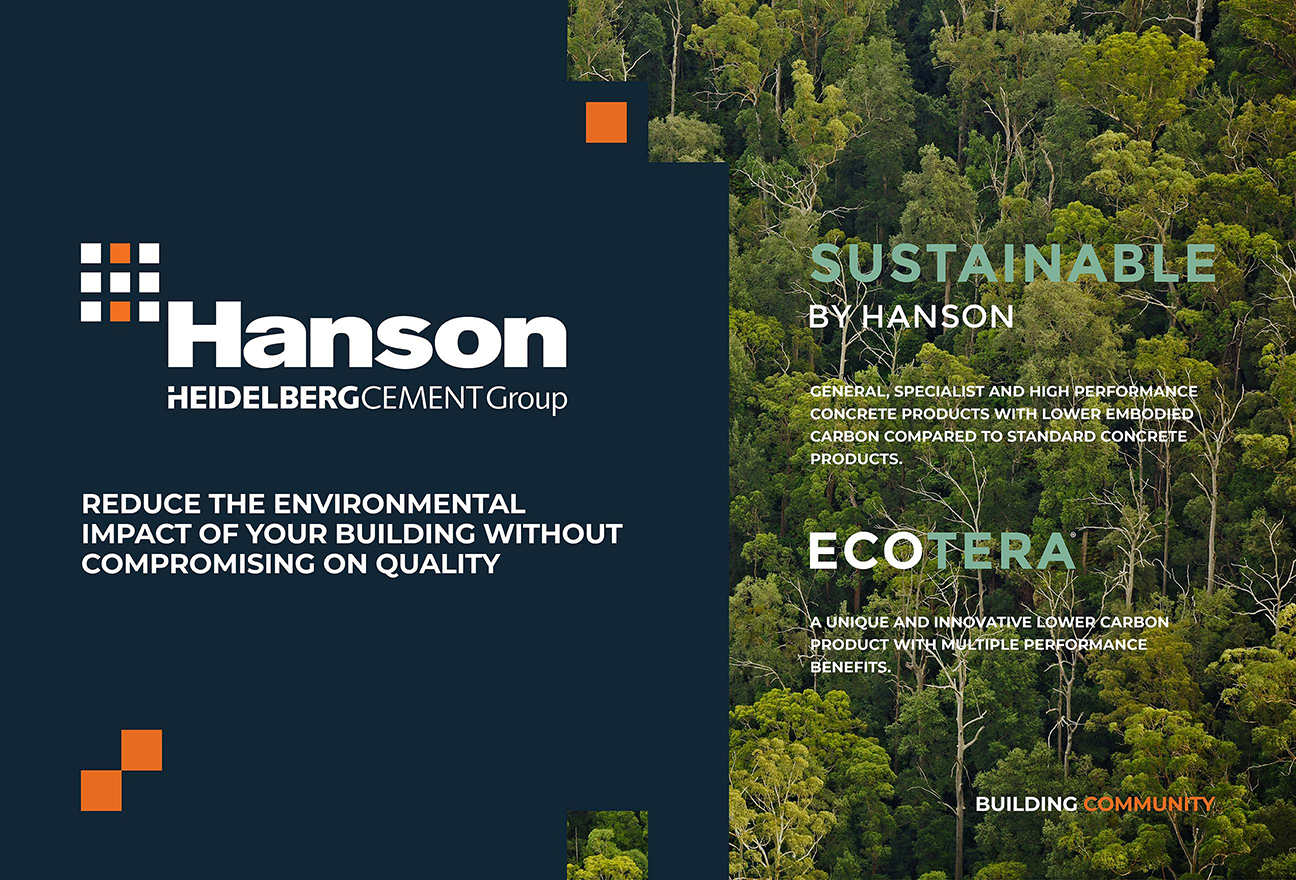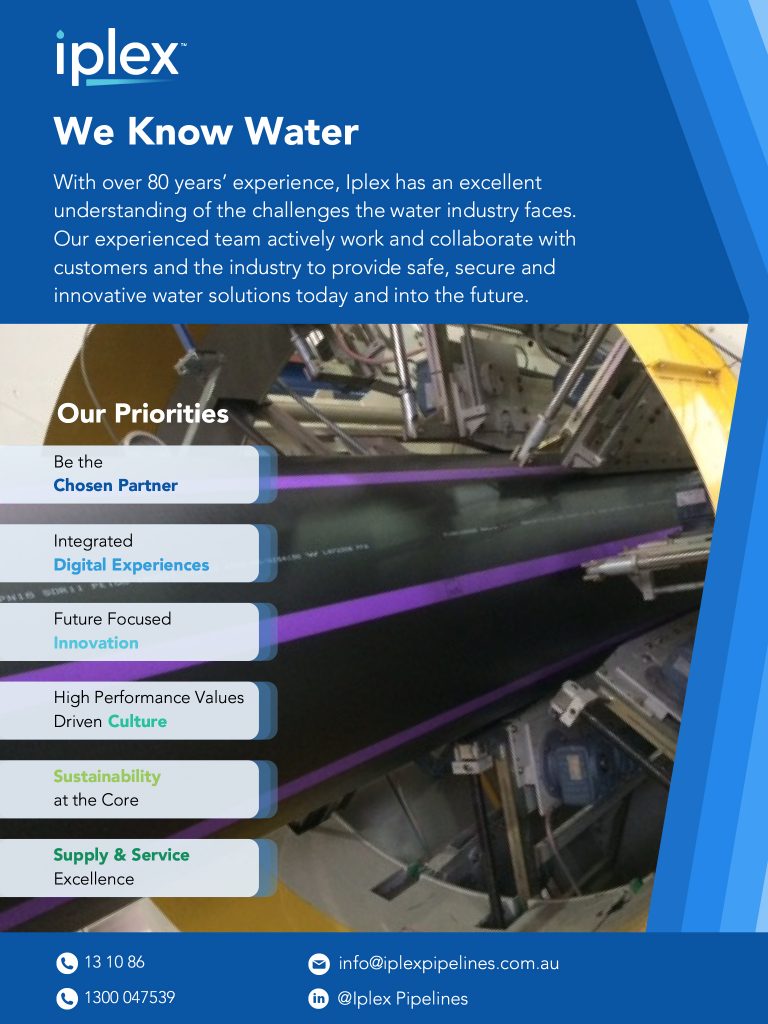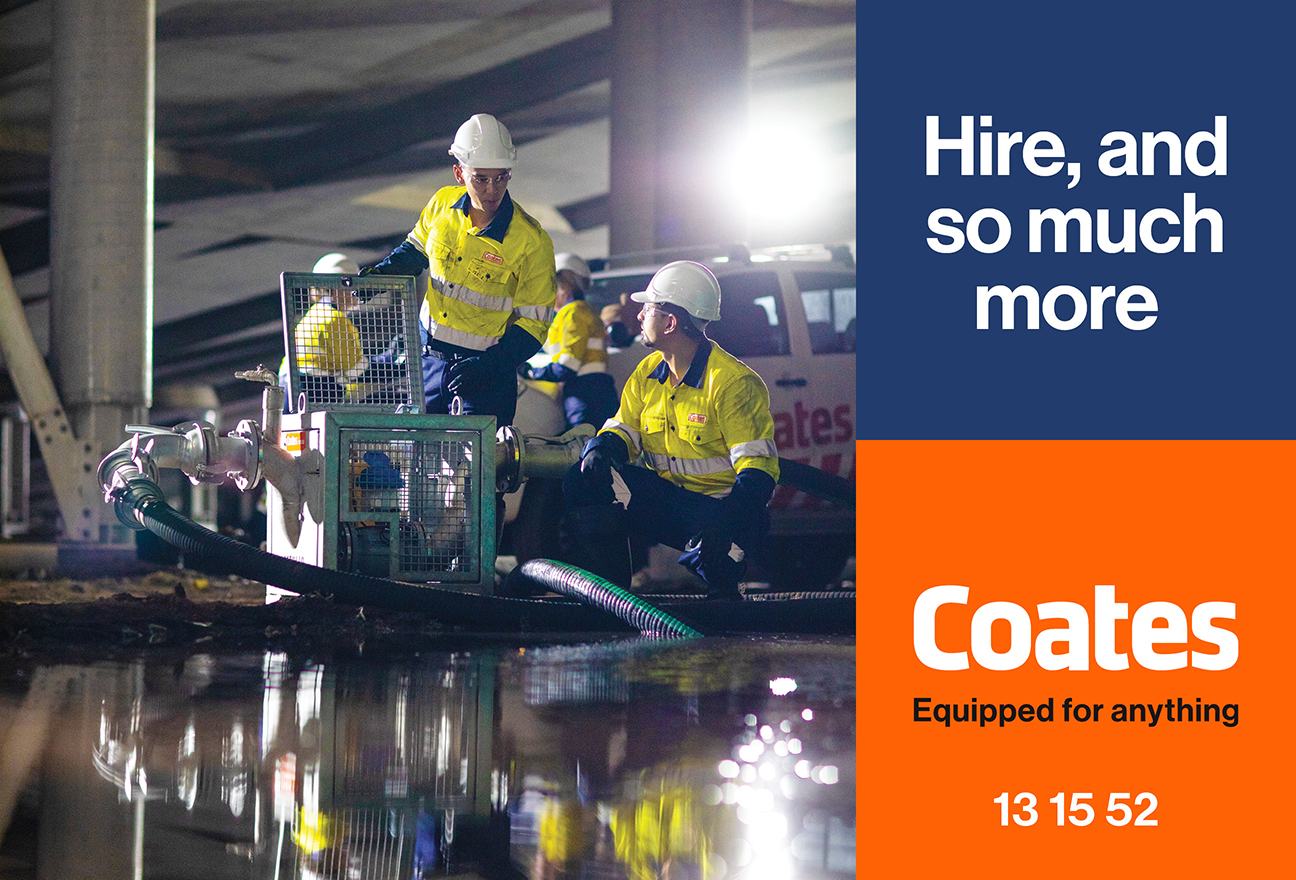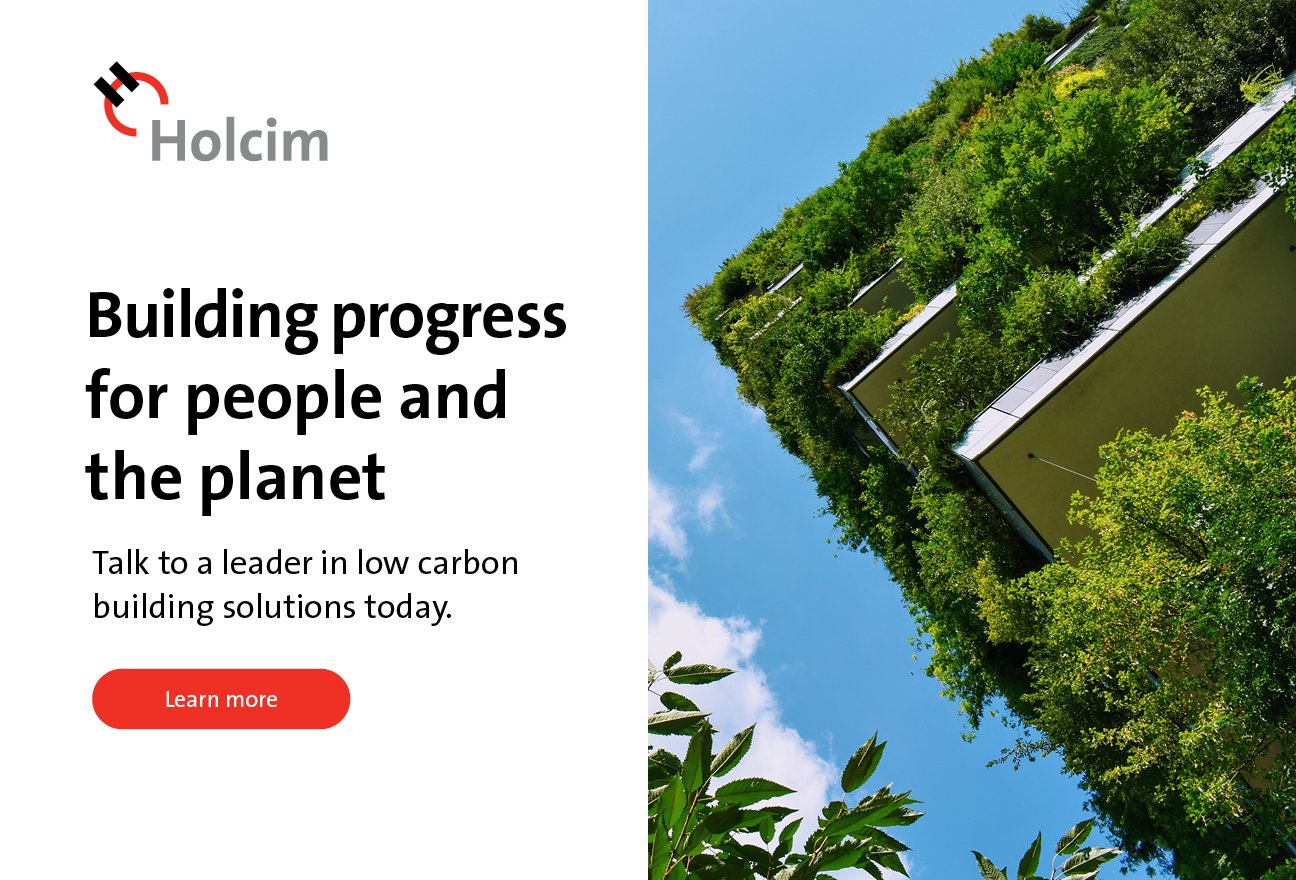The Saturday mornings of Scott Power’s childhood were atypical to say the least. While his friends were playing sport or hanging out, he was on a family outing, “visiting the jobs”. His father, construction giant Mick Power, spent a lot of his downtime on worksites; subsequently, so did Scott.
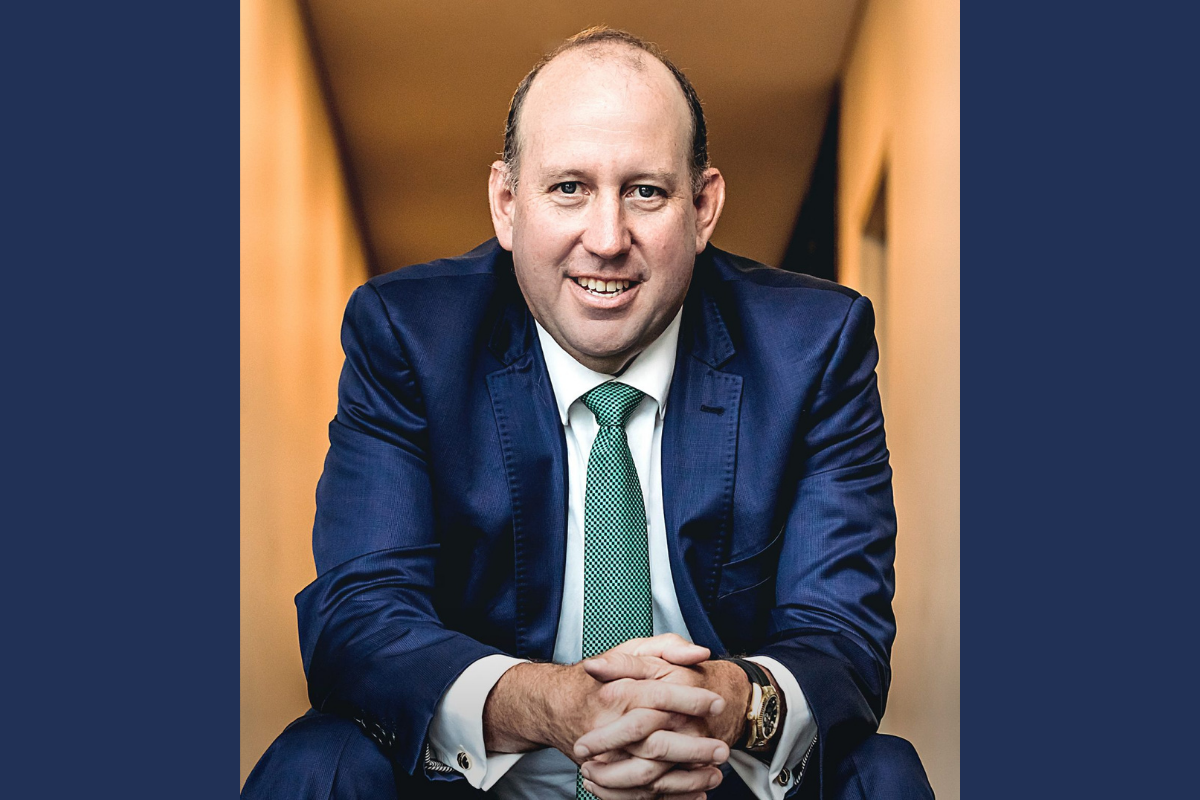
“Even on school holidays with my grandparents, we’d be getting around the jobs to deliver the pays or collect the dockets,” he recalls. “So from an early age, I developed an interest in civil construction.”
Mick was a towering figure in Scott’s formative years, and his 40 years of success with his company, BMD Group, left a powerful impression on the younger Power. “Like most kids, I’ve always looked up to and admired my dad,” Scott says.
Mick established BMD with his wife Denise, sister Beverley and brother-in-law Bevin in 1979. Aged just five years old at the time, BMD has had a looming presence in Scott’s life ever since. “It was always my intention to follow in his footsteps. I wanted to be like my dad.”
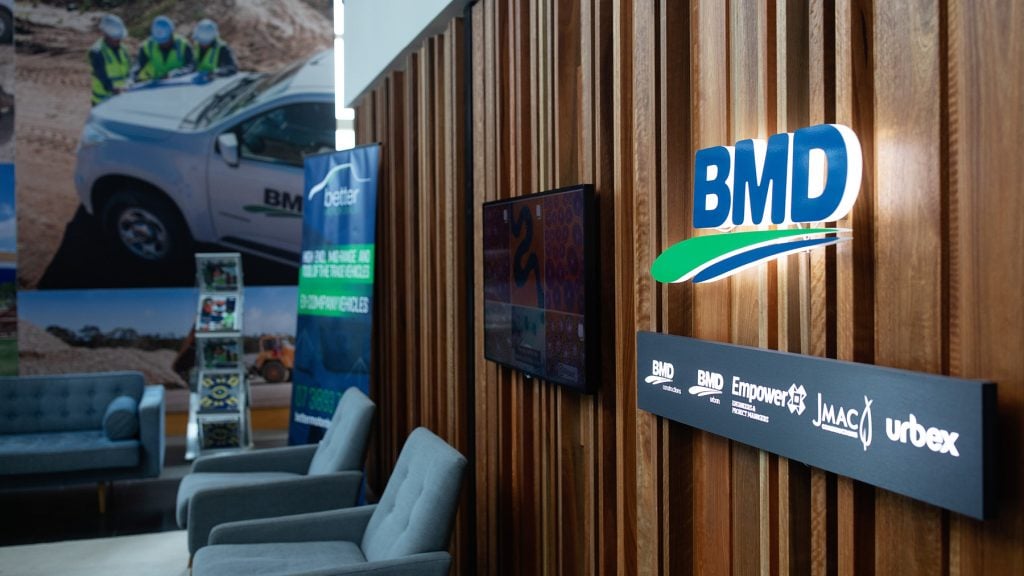
Lifelong desire
Heading up one of Australia’s largest privately owned construction, consulting and urban development organisations would be a hard act for anyone to follow, and yet Scott has done precisely that. In 2020, the elder Power handed BMD to his son, allowing Scott to put his own years of experience and hard work towards taking the family business to the next level.
“All the way through my schooling, I was very clear on what I wanted to do – become a civil engineer,” Scott says. “That helped enormously in navigating what can often be a challenging time for kids trying to figure out what they want to be.”
Having achieved a degree in civil engineering, Scott and his father discussed the merits of progressing his career externally before entering the family business. However, the timing worked both for and against him. “At that point, the business was in the midst of a period of significant growth and it was expanding geographically,” Scott says. “So it was felt that the breadth of opportunity within BMD offered a prime opportunity for me to grow and develop my skills.”
And so it was in late 1995 that Scott entered BMD. “When I joined, it was a A$50 million business with offices in Brisbane, the Gold Coast and Townsville.”
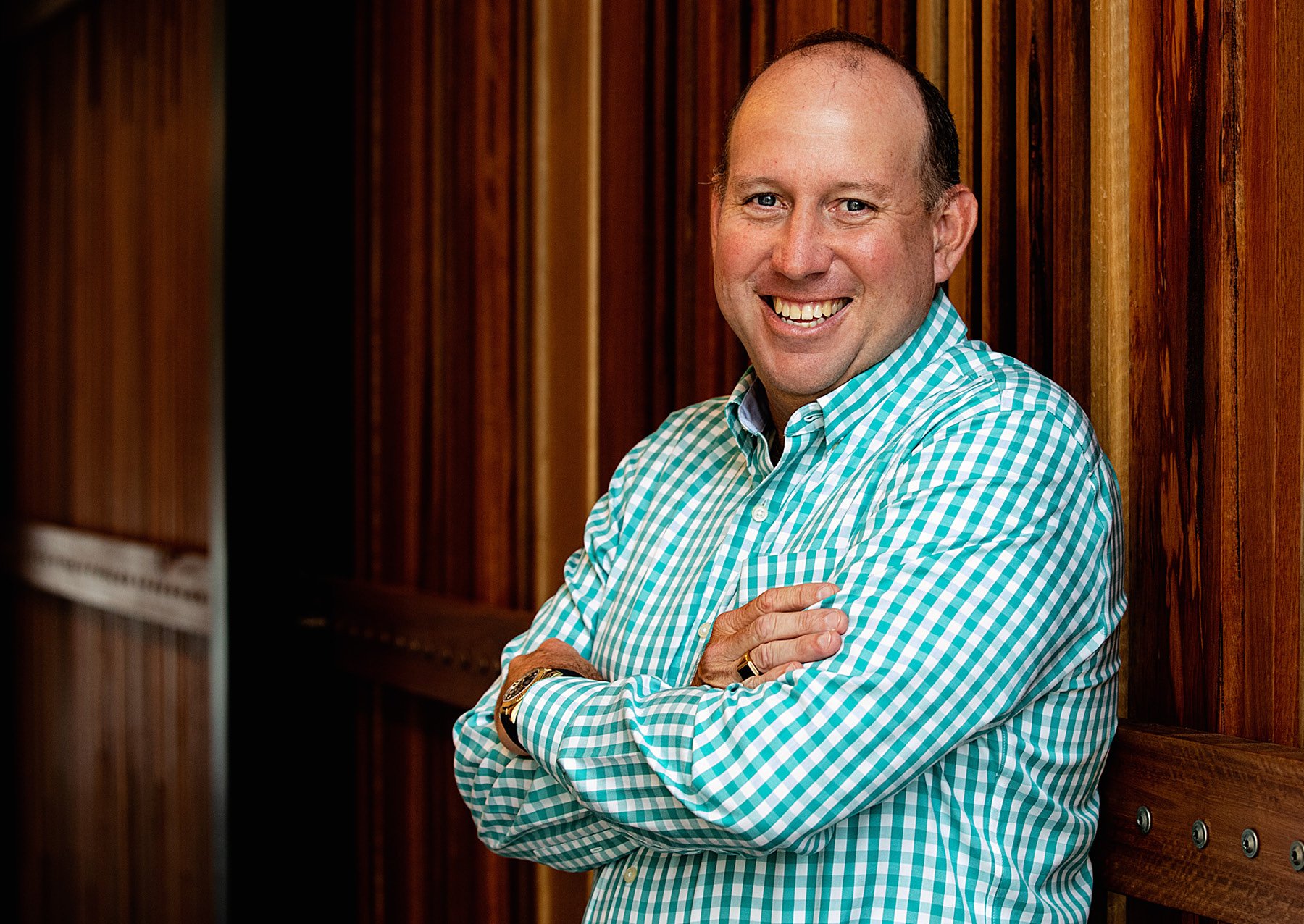
We are at a point in our history when we’re finding ourselves presented with unprecedented opportunities to grow.
Today, BMD Group is an industry titan with five companies in its stable: BMD Constructions, BMD Urban, Empower Engineers & Project Managers, JMac Constructions and Urbex. In the 2020–2021 financial year, the Group achieved a record turnover of A$1.55 billion.
“We are at a point in our history when we’re finding ourselves presented with unprecedented opportunities to grow,” Scott says. “With work in hand approaching A$2.5 billion, we have a strong pipeline ahead of us.”
On the job
BMD Group’s work is a mixture of engineering, design, construction and land development. From urban development and transport infrastructure to resources and energy, BMD brings a team of quality people and a strong network of partners and suppliers to every job it takes on.
Level crossing removals in Victoria, airport runway upgrades in Queensland and bridge replacements in New South Wales are just some of BMD’s billion-dollar project portfolio. “BMD’s involvement in some truly nation building projects also assisted in catapulting BMD from a small Queensland family business to become Australia’s leading privately owned construction, consulting and urban development organisation,” Scott says.
The internationally significant Legacy Way tunnel project is a prime example of BMD’s capabilities, demonstrating the effectiveness of its systems, management talent and technical skills in the delivery of world-class infrastructure together with partners with global expertise.
“It was recognised as the world’s leading tunnelling project in 2013 at the International Tunnelling Awards,” Scott says. “That project has played a key role in driving recognition of BMD as a major participant in the infrastructure delivery market.”
Another significant BMD project was Brisbane Airport’s New Parallel Runway (NPR). The organisation’s first contract associated with the project was awarded in 2012, leading to BMD undertaking construction of one of Australia’s largest aviation projects for the next eight years.
BMD’s successful delivery of stage 1 of NPR led to BMD being awarded a A$340 million airfield works contract as part of the 50:50 SkyWay Joint Venture. “We successfully delivered the project over three years,” Scott says. “And in doing so we set a benchmark for design, efficiency and construction that was the cutting edge of engineering.
“As the most important piece of aviation infrastructure ever built in Queensland, NPR has effectively doubled the airport’s capacity and provided unlimited opportunities for regional and national growth. By 2034 the runway will generate 7,800 new jobs and an additional A$5 billion in annual economic benefit to the region,” he explains.
Strengthening the footprint
During his first 26 years with BMD, Scott worked in virtually every facet of the business. Along the way, he undertook executive programs at Harvard Business School and completed the MIT Sloan Fellows Program in Innovation and Global Leadership in preparation for higher responsibilities.
In 2009, Scott became Group Executive Director of Operations, a role he would hold until his formal appointment as CEO in 2020. “Prior to that, my father had been progressively extracting himself from the day-to-day operations of the business,” Scott says. “So I was increasingly driving the business forward until that time. Even now, I’m actively involved in the construction industry, advocating for contractors and building relationships with clients and partners to uphold BMD’s respected position.”
Over the past fruitful decade, Scott focused on strengthening BMD’s geographic footprint, including establishing an office in Perth and building a presence in Western Australia. “We were also expanding our capabilities in broader market segments such as rail, ports, airports, water and wastewater, and renewable energy,” he says.
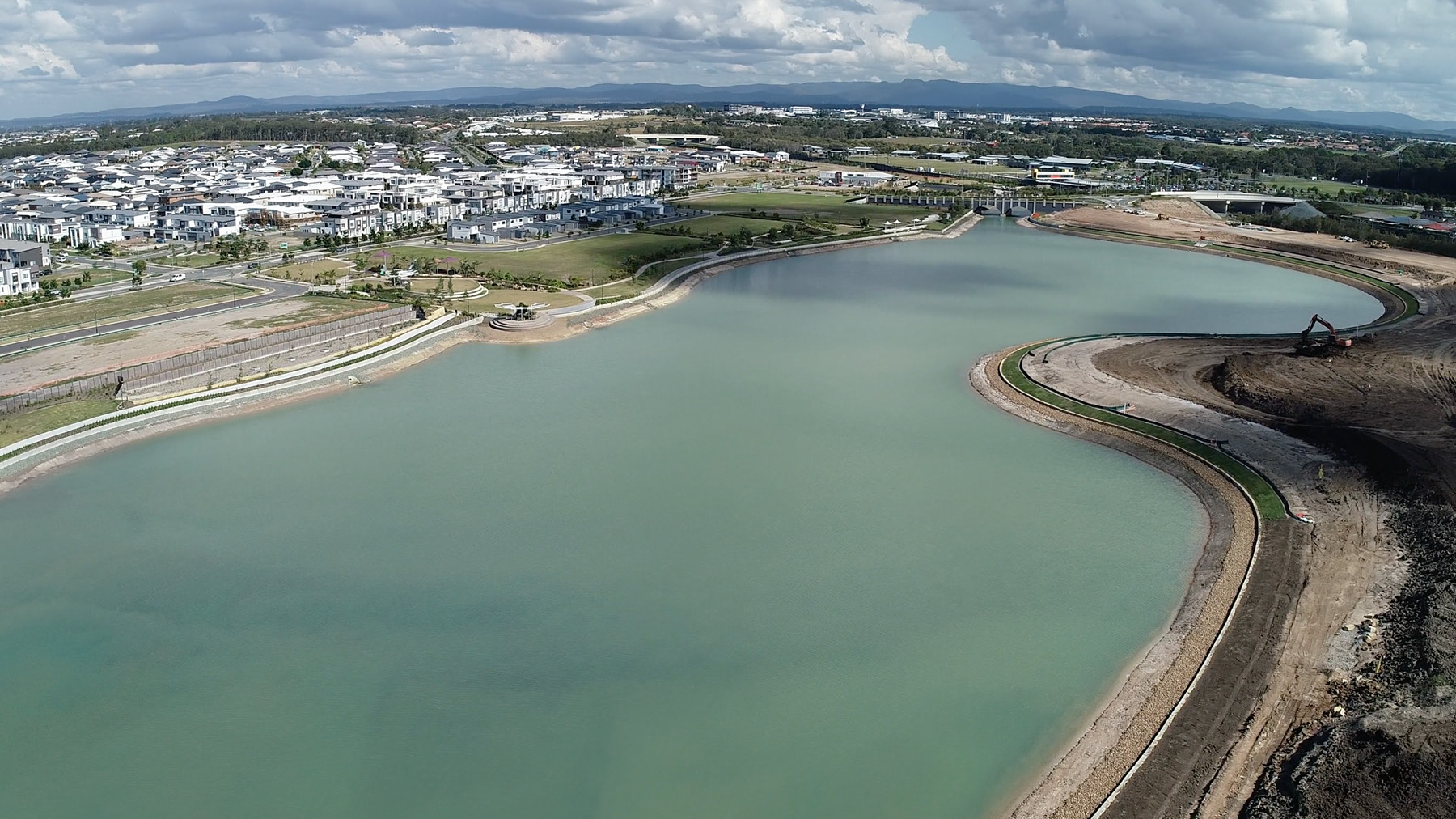
It’s been a shift in mindset to say, ‘OK, we’re not a Queensland company working nationally, we’re a national contractor delivering national projects.
The resultant growth was strong; so strong that five years ago, BMD opened an office in the Philippines in partnership with a client from Melbourne. “This business continues to grow, predominantly in the delivery of infrastructure, and provides significant opportunity for BMD both in the Philippines and across the broader ASEAN region moving forward.”
The venture was a direct result of BMD’s stronger focus on diversification. “Over the last decade, we’ve really shifted from being a Queensland company to a national business,” Scott says. “It’s been a shift in mindset to say OK, we’re not a Queensland company working nationally, we’re a national contractor delivering national projects.”
The change has meant the implementation of new business strategies. Recently, BMD embarked on an initiative to focus on people, process and performance. The plan aims to align business objectives with BMD’s purpose, culture and values, and build consistency in its key messaging.
“Culture is everything to our business,” Scott says. “Early on in our history, core principles were adopted that have translated into long-term relationships with our clients, subcontractors, suppliers and employees. To this day, these principles are embodied in our mission statement and stand as the cornerstone of our business as we continue to grow.”
The BMD way
With so much success in BMD’s recent history, celebrating that success is a regular occurrence under the various roofs of BMD. Recognition of milestones has always been at the heart of what Scott calls “the BMD way”, and he believes doing so is crucial to retaining a high performing team.
“One way in which we instil our values and culture is through our annual Dare Awards event,” he says. Named after Scott’s grandfather Dare Power, the internal, peer-nominated awards recognise and reward employees who have gone above and beyond in their roles or have displayed behaviour that strongly aligns with BMD’s core values.
“We also have 100-plus members in our 20 Year Club, which honours exceptional long-term employees,” he says. “These long-term team members are a key conduit through which our newer employees are onboarded to the BMD way of doing things differently.”
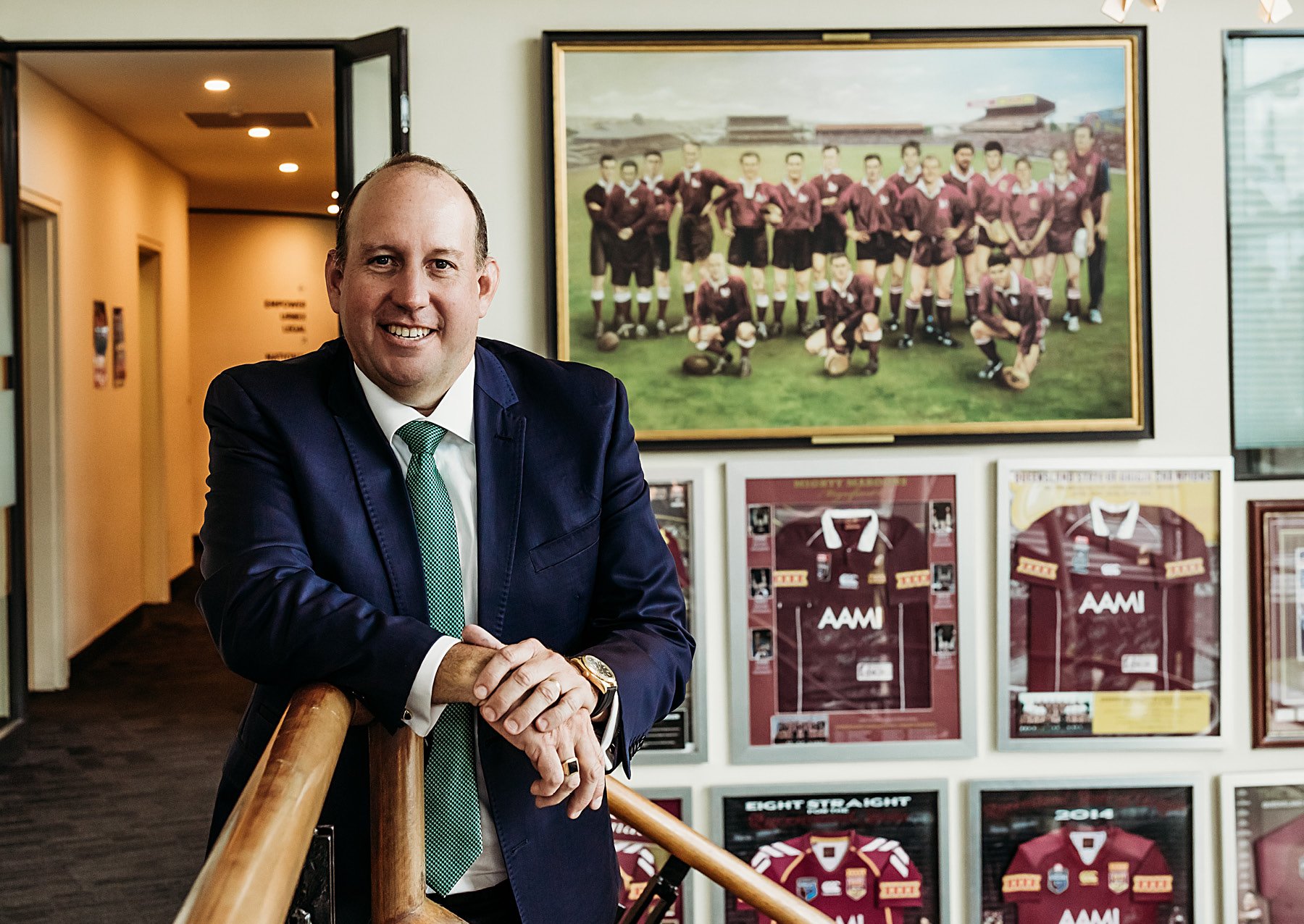
As a business, we have to do everything possible to support our people towards achieving success. We’ve put a lot of emphasis on learning and development.
Bringing new people into the BMD fold is a challenge of its own, Scott says, and one that’s only grown as the company has expanded. “Naturally, with the kind of growth we’ve experienced, I’d say one of our biggest challenges is hiring new people in a highly competitive market,” Scott says. “We also have to ensure that while we grow, we remain committed to finding people who are the right fit for our business.”
Hence the renewed focus on recruiting and retaining the best and brightest of the new generation. “As a business, we have to do everything possible to support our people towards achieving success,” Scott says. “We’ve put a lot of emphasis on learning and development.”
In a move that echoes Scott’s own on-the-job education, BMD staff are offered key learning programs including Foundations (a graduate program), Formwork (a field leadership program) and Fortitude (a future leaders program) to develop and enhance their skills.
“We’ve also recognised that as a traditionally male-oriented business we must ensure that our policies and practices can support a more diverse workforce,” Scott shares. The formation of the Women@BMD advisory group was an important step towards this outcome, as were the introduction of flexible work arrangements and paid parental leave. “This extends also to our Indigenous program, which is supported by our commitment to our Reconciliation Action Plan.”
Digital shift
While largely unaffected by the COVID-19 pandemic, Scott says BMD took the opportunity to further develop these fundamental changes to the business as well as introduce new initiatives.
“One of the key things we learned throughout the COVID pandemic is how quickly we can adapt to change,” he says. This was particularly evident in BMD’s shift to digital platforms to facilitate remote working and interfaces.
The construction industry has been historically slow to adopt the latest technology and digital platforms.
“We’ve initiated the DigiLead program to build on this change momentum and to drive our digital transformation,” he says. DigiLead is the result of a group-wide survey designed to gain a better understanding of how best to serve the BMD team with cutting-edge technology. It uses artificial intelligence and digital dockets to provide staff with quicker and easier access to single sourced data, enabling better decisions sooner.
“The construction industry has been historically slow to adopt the latest technology and digital platforms,” Scott admits. “So we want to use this platform to drive greater productivity across the business.”
Concurrently, the adoption of platforms like Docketbook, which shifts the receipt of goods from a paper-based docket system to a digital platform, has significantly streamlined BMD’s procure-to-pay process. “It improves productivity not only for our field teams, but also for our vendors and supply chain.”
Giving back
COVID also meant a chance to give that much more back to the community that’s supported BMD for so many decades. “We saw an opportunity to take a leading role in supporting community organisations impacted by the crisis,” Scott says. In late 2020, BMD announced 36 recipients of its COVID-19 recovery community assistance program, in which grants of up to $5,000 were provided to grassroots and not-for-profit organisations across Australia.
“These organisations provide vital services to the communities in which we live and work,” he says. “To us, it was the least we could do.”
Through his role as CEO, Scott has been a strong advocate for sustainability within the industry through the facilitation for greater opportunity for mid-tier privately owned contractors. “A healthy construction industry in which all segments of the market are afforded opportunities to grow and develop their capability and capacity is critical to maintaining the sovereign capacity needed to deliver our infrastructure requirements for generations to come.”
Business as usual
Scott’s ascension to the top job ensured the continuation of the culture BMD had become renowned for. “Since the Group’s inception in 1979, BMD has maintained a collaborative approach both internally and in its long-term relationships,” he says. “We were built on the philosophy that ‘our business is our people’, which is as relevant today as it ever was. When we talk about the BMD family, it extends beyond the Powers.”
I’m focused on being authentic in my dealings with people inside and out of the business.
As such, Scott’s dealings with his teammates remain as honest and open as might be expected from a family. “I’m focused on being authentic in my dealings with people inside and out of the business. I empower teams to take ownership and deliver on projected outcomes, and I’m passionate about building a clear and inspiring strategy for business growth,” he says.
This kind of relatable and direct engagement comes straight from Scott’s father. “He’s able to engage with people at all levels. Whether he’s talking to a labourer or the Prime Minister, he affords them the same attention and respect,” Scott says. “I think being able to do that and engage with people, being generous with your own time, is a key skill that builds trust and helps develop authentic relationships.”
Demand for supply
And its BMD’s assortment of longstanding supplier relationships that Scott believes is unique within the industry. “It’s one of the things I’m most proud of,” he says. “We focus heavily on collaborative contracting, and the loyalty that we’ve shown suppliers and subcontractors such as Coates, Holcim, Sci-Fleet Group, Toyota, WRB Holdings, Hanson, Iplex and Boral has been reciprocated time and time again in terms of the impact they have on ensuring we deliver our projects on time and to a high quality standard for our clients.”
That uniqueness is another by-product of “the BMD way”, Scott says. “The BMD way has always been to understand our clients’ requirements and work closely with them to ensure we all achieve our desired outcomes,” he says. “The way in which we go about doing our jobs is the single biggest difference between BMD and the competition.”
Long way to the top
Scott may be a long way from those Saturday mornings he spent enthralled by his father, but he’s never been closer to the industry that inspired him. “When I think about my own childhood and the things that got me interested in the industry, there’s a significant amount of satisfaction that comes from being able to drive through a project or a piece of infrastructure and share with your friends and family that you played a part in delivering that,” he says. “Even after this long, it never gets old.”
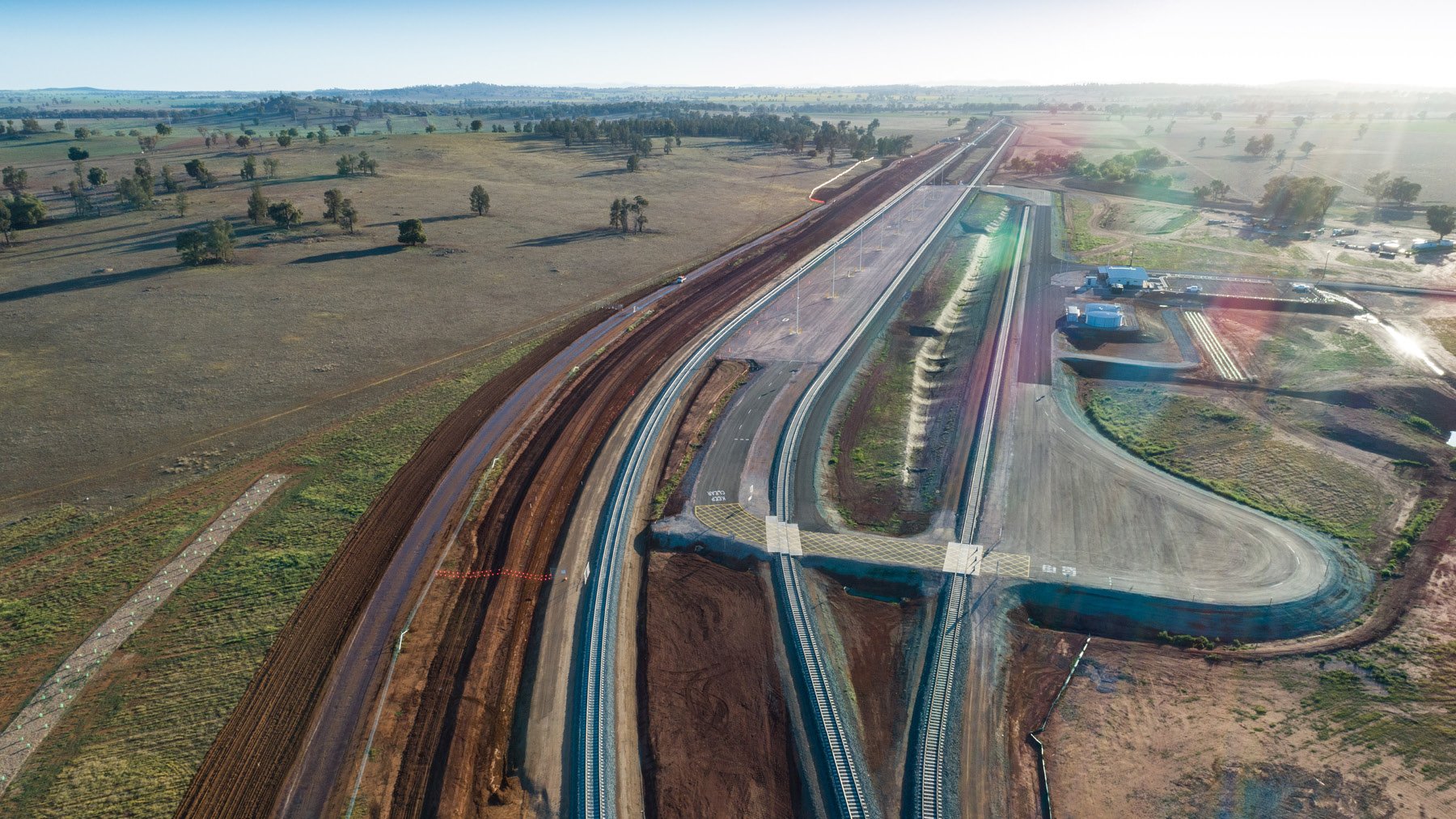
Our record turnover last financial year, after 42 years of business, demonstrates just how much BMD has grown.
His years in the industry have also left him with relationships that have stood the test of time. “Whether you’re working closely together on projects or just interacting regularly over an extended period of time, you go from colleagues to lifelong friends,” he says. “You can’t put a price on that.”
The prices are reserved for BMD Group’s bottom line, which is healthier than it’s ever been thanks to Scott’s sure handed direction. “When my father completed his first year of business at BMD, the company had made a profit of A$800,” he reflects. “Our record turnover last financial year, after 42 years of business, demonstrates just how much BMD has grown.” And, from “visiting the jobs” to running the ship, just how far Scott has come.
Sponsored by: WRB Group Holdings
WRB Group is a locally owned Brisbane-based company, providing a turnkey solution for its clients with the design and construction of concrete sleeper retaining walls and fencing.
Read More
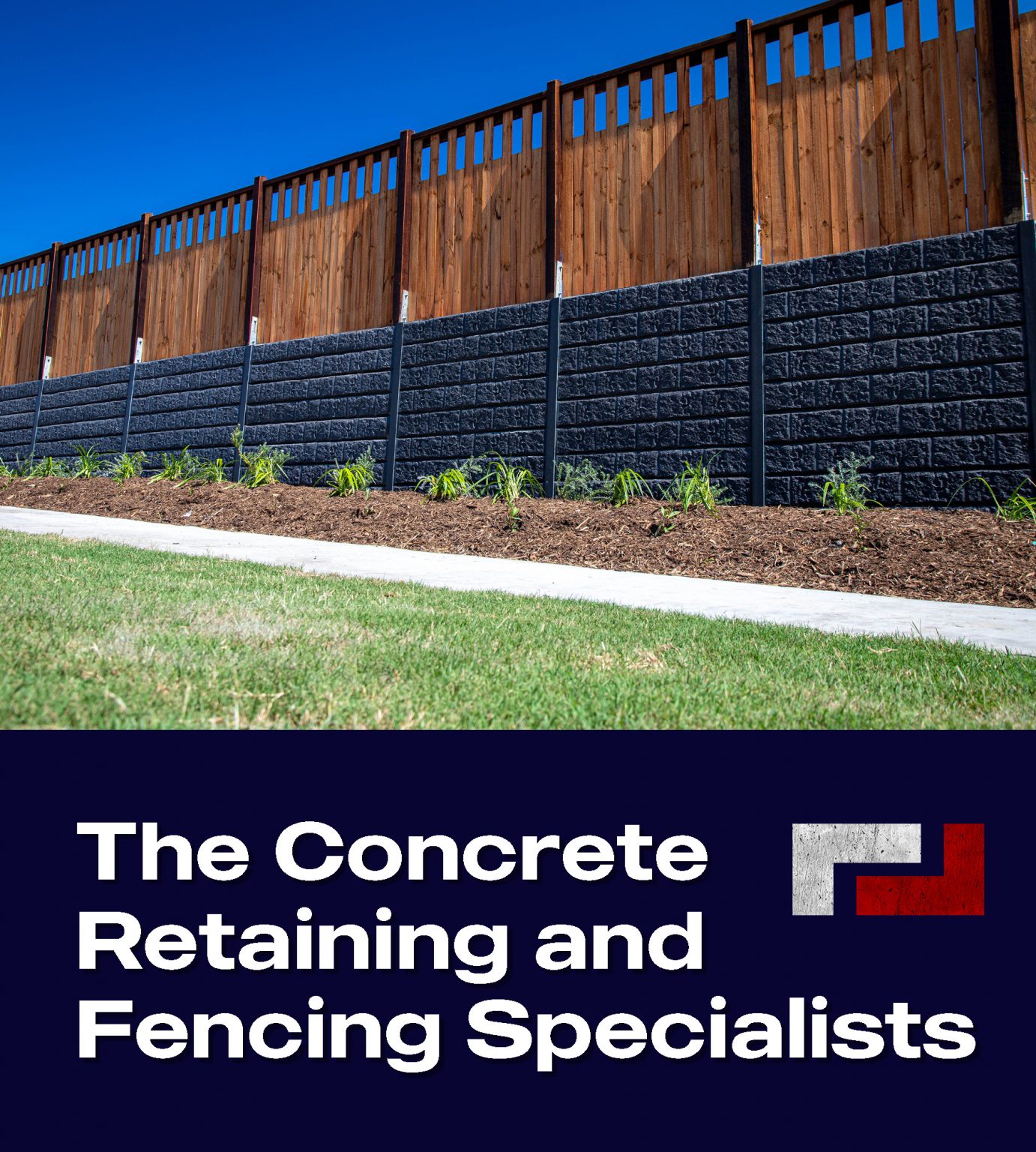
Proudly supported by:

